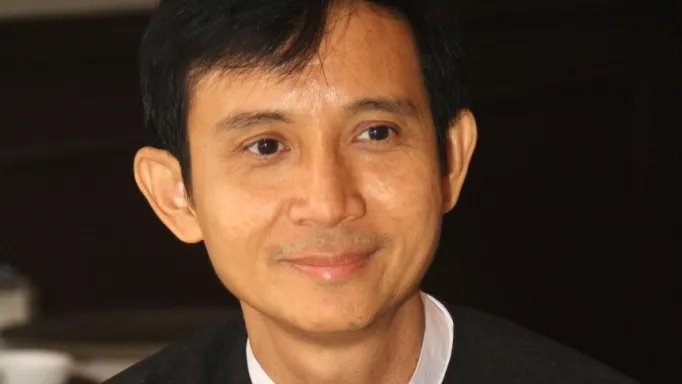
Myanmar's United Amara Bank CEO eyes adding 25 to 55 more branches by end-2017
With financial inclusion only at 23%, the brick and mortar strategy is key, says Than Win Swe.
The opening up of Myanmar's economy caused more banking licenses to be issued in the country, resulting in 24 local private banks and 9 foreign bank branches to date. Whilst this is a positive development in the country's banking and finance industry, it also posed a great challenge amongst the banks in terms of competition, especially in a market with only one in four adults having access to financial products and services.
In 2010, four private banks dared to begin operations in Myanmar, one of which was United Amara Bank (UAB). After six years in the business, UAB has grown with an asset base of approximately USD 500 million, 45 branches and 230,000 accounts.
With the advent of mobile and internet banking, industry players in more developed parts of Asia are debating whether a physical bank branch is still relevant to the customers. But in Myanmar, with financial inclusion being one of the greatest challenges, customers still prefer having a bank branch near their home or office.
Find out more about the current situation in Myanmar's banking sector as we bring you an exclusive interview with Mr Than:
ABF: What are the latest trends and challenges in Myanmar’s banking sector, especially after the country opened up its economy?
The expansion in banking sector has resulted in fierce competition amongst banks for market share. Since the opening up of Myanmar’s economy, a number of new banking licenses have been issued. Today, there are 24 local private banks and 9 foreign bank branches and this number is expected to grow.
In the environment where the economy is in transition and the market is highly competitive, the challenge is ensuring adequate supervision of the banking sector by relevant authorities and by the banks themselves with a sufficiently strong governance structure.
One of the biggest challenges of Myanmar as a nation is financial inclusion with less than 23% of adults having access to formal banking system. Further much of the day-to-day transactions are cash-based.
The positive point about competition amongst banks is that the number of bank branches has increased rapidly and new banking products are being introduced constantly to attract a flow of deposits into the formal banking sector.
In order to move out of the cash-based mode, the national payment systems would need to be upgraded towards electronic-based mode. The process has already started with the setting up of the Myanmar Payment Union (MPU) and other government-backed projects. Myanmar banks have also successfully started their own ATM systems, Online banking and Mobile banking platforms.
We find the competition interesting in the sense that banks like ours are required to improve and innovate in order to remain on top and I find this challenge enjoyable.
ABF: What were the challenges you had to address during the early years of UAB's establishment?
In the early years of establishment, we had to start from a zero base. The first task was to get a team of people with strong banking experience and fortunately, we were able to establish a team with the prerequisite requirements. We were also fortunate to have serious shareholders with strong commitment and entrepreneurial abilities which drove us through the early phase of development.
In a sense, it was good to have started the Bank from a zero base since we inherited no skeletons in the closet and we could shape the Bank into what we envisaged it to be. Although it was a slower process to build the Bank brick by brick, looking back, it enabled us to build strong foundations and to form our own unique UAB Corporate Culture.
Unique to Myanmar is probably a huge gap in skilled staffs as the nation opens up its economy. The need to upgrade employee skills was a challenge in the early years and this remains equally so at the present period of time.
There is, therefore, no substitute towards building the Bank’s own training facilities and investing in the training of staffs; these areas of which we are strongly engaged in.
ABF: What do you consider as your biggest achievements so far as the CEO of UAB?
Presently, the Bank has an asset base of approximately USD 500 million, 45 branches and 230,000 accounts. Looking back, to be able to accomplish this target within a short period of 6 years has been an achievement for the team at UAB. More importantly has been our effort to ensure that the asset base is sound.
The largest asset portfolio in our Balance Sheet is our Loan Assets and I have been personally involved in ensuring that we build a sound Loans Portfolio in the midst of this rapid asset growth. The biggest risk to any bank in Myanmar is that with such a rapid pace of growth, the danger of acquiring a low quality loan portfolio is high.
At UAB, as a team, we constantly remind ourselves that the Loan Portfolio must be sound in order to anchor our Balance Sheet.
ABF: What are your key business philosophies?
In the business of banking, the key business philosophy of my team is the importance of “Customer”. Our whole bank is run with the concept that without the Customer, there is no business to run.
Being a person from industry before joining the Bank, I have learnt the value of knowing the details. Therefore, in running the Bank, it is important to know both the macro and micro details.
I seldom make any strategic or major decision without going in depth into the matter. While Myanmar is in this transitory stage and with many staffs still young in terms of their experience, the need to be detailed is important to make up for the inexperience issue.
Trust is a key word in running the Bank and particularly if you are answerable to your Customers and Shareholders. I take this issue of trust very seriously and constantly remind my team about the matter.
ABF: What business strategies do you employ in terms of business expansion?
From our surveys, we note that a key preference for Myanmar customers is to have a physical bank branch near their home or office. Therefore, the “brick and mortar” strategy is important at this stage of development and a reasonable sized retail branch network is required.
We are therefore expanding our branch network to 70 branches by end-2017 and then to 100 branches thereafter. In this expansion, we are mindful that whilst the business opportunities are many, the Operational Risk factors also increase accordingly. Therefore, the expansion has to be controlled and well executed to manage the risk areas.
We are fortunate that at this time, Myanmar remains an “honest society”. However, with the nation opening up to the world, other influences will come in. Therefore, in the push for expansion especially with the opportunities we see today, the Bank cannot ignore the need for Internal control. The expansion must be done in a controlled fashion.
Whilst Myanmar still remains largely as a cash-based society, the use of electronic means for communications is expanding rapidly with the use of internet and mobile phones. Electronic banking is expected to catch on very quickly and the Bank is posturing itself to bundle its products both via traditional and via electronic platforms.
We have structured the Bank to be able to provide to our Customers a reasonable suite of electronic products. Being mindful of the capital requirements, timing is important in ensuring that we are neither too early nor too late.
From our surveys, we also note that a key reason why Customers come to a bank is dependent on the level of Customer service. With 24 local banks already fiercely competing in the markets, sometimes the only thing that differentiates us from others is the level of Customer service.
Therefore, despite the rapid branch expansion, a key component is to ensure that all service staffs have a high and consistent level of Customer service across our channels including Branches, Call center, ATMs, Online banking and Sales teams.
ABF: Please tell us more about your recent projects/initiatives in the bank.
In the midst of business expansion, the availability of skilled labour is critical to be able to execute the strategies. Training has been emphasized and this year, the Bank has a major drive to ensure that all its employees will go through training programs specifically tailored towards meeting our business targets and goals. A new Training Center has been built for this purpose and we are acquiring staffs that will be capable of running the training operations.
In our loans portfolio, we have begun rating our Customers and whilst this process may sound basic, the concept is new in Myanmar. We have a project running to ensure the credit personnel across the Bank are familiar with the concept and apply it consistently.
With Trade Finance, we continue to expand our international reach through partnerships with various foreign banks. We have also set up a Card division which is in the early stages of rolling out a Credit Card program.
In order to improve our internal standards, we have ongoing projects on IFRS accounting and Corporate Governance. The IFRS project will enable the Bank to adopt international accounting standards while the Corporate Governance project is designed to strengthen the governance structures of the Bank.
The developments at UAB are exciting and dynamic and we certainly look forward to developing a Bank that will meet the standards required by our Customers in Myanmar and our peers internationally.
At the end of the day, we look forward to seeing that being Safe, Sound and Trust is not only just a motto for us but also something that the foundations of UAB are built on.


















 Advertise
Advertise







